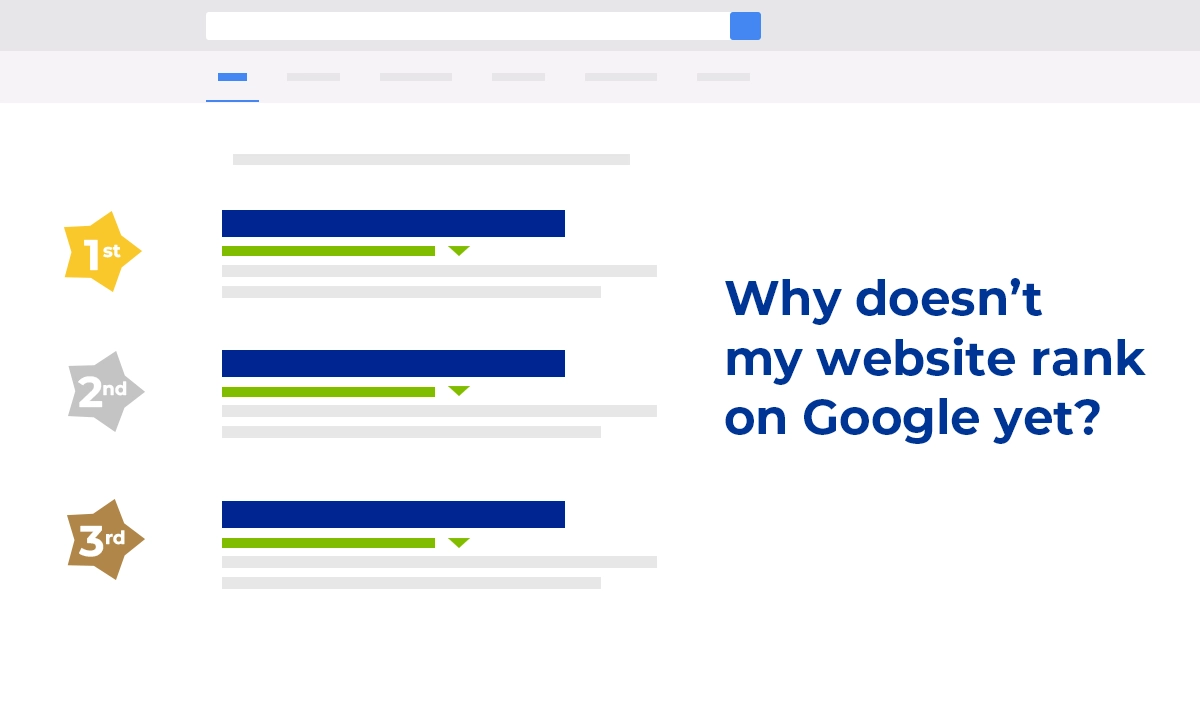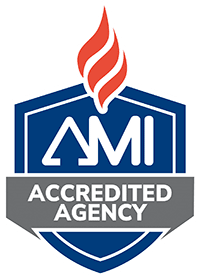The following article was originally published on our main agency website. We’ve gone through the process now of setting up these Google Guarantee Ads for a couple of roofers and they’re seeing great results. We know this is going to be huge for auto repair shops as well. We hope you find value in this article. Let us know if you have any questions about Google Guarantee Ads or the process of becoming verified. The best way to do that is to join our Facebook group – “Auto Repair Marketing Mastermind” – and ask in there, that way others benefit from your questions and comments.
********************************
A website doesn’t do you much good if no one is visiting it. That’s a given. So, when you invest a substantial amount of time, money, and manpower toward a new website or web redesign, you expect to see some positive results on those all-so-important search engine results page (SERPs).
What happens when you don’t see those results?
Well, assuming your web design team employed some tried and tested SEO practices into your website, you will see the positive fruits of that labor. Just don’t expect to see it overnight.
Here’s why patience will be your best friend as you wait for your new website to make its way to page one on SERPs.
WHY YOUR SITE ISN’T RANKING: YOUR WEBSITE OR DOMAIN ARE TOO NEW
File this under “I guess I never realized that!” – There are roughly one billion (or so) websites out there. Yup, 1,000,000,000. Those 1 billion sites are managed, sorted, and indexed by search engines, like Bing and Google. But doing that type of indexing takes time. Sure, search engines crawl sites pretty fast…
But we’re still talking about one billion sites that need to be crawled, managed, and indexed. Not even Santa could perform that task in one night.
Let’s say that you just launched a website that sells cars. Google is going to have to discover that you do, in fact, sell cars. It’ll then determine where you sell those cars based on the content of your site. It’ll also judge how reputable you are before it begins to rank you.
Keep in mind that one of the ranking factors Google uses is how long your site’s been up. Sites with a long history of existence are more likely to be reputable (in Google’s opinion), so if you’re launching a brand new website and domain, you’ll be competing with a lot of other folks who have history on their side.
If, however, you’re just redesigning your site, then your web development team can (and should) ensure that your new site receives all that powerful search engine mojo that you’ve accumulated over the years.
While ranking on search engines can take weeks (and months), you can help expedite the process (a bit). Make sure that whenever you implement changes to your site (including adding new pages) that you submit an updated sitemap to Google. You can also ask Google to re-crawl your URLs. Both of these tasks can be performed in your Webmaster tools account.
OTHER WAYS TO GET YOUR SITE RANKING HIGH – FAST
A well-built website, that’s implemented SEO practices, will find its way into search engine results pages; however, keeping in mind those other 1 billion sites out there, many site owners have to do a bit more to get found.
For example, SEO is not a set-it-forget-it task. It’s ongoing. Take, for example, some of the typical SEO strategies you could employ on a regular basis that’ll help you rank:
- Blogging
- Meta-tagging
- Link building
- Social media
PPC is yet another way to get found on SERPs. While it’s not an organic approach, it is a great way to get people to see your site – and brand name – while you wait for Google to index and rank your site. Social media advertising is also effective in getting people to notice your site.
When people click on your PPC and social media ads – and are taken to your website – Google will see your site as receiving traffic, and will reward you accordingly.
RANKING FOR BRANDED SEARCH TERMS VS. YOUR PRIMARY KEYWORDS/KEY PHRASES
When it comes down to ranking on search engines, what we’re really talking about here is ranking for specific search terms.
If you sell cars in New Orleans, one key phrase you might want to rank for is “Cars in New Orleans.” But imagine how many other companies out there are trying to rank for this term. And, remember how Google feels about sites with a long history of existence … you have stiff competition as you strive to rank for this popular term.
Is it possible for you to get on page one for this term? Of course it is. Just don’t expect it to happen quickly. Your SEO/web development team will work hard to get you ranking for that term (and other popular ones); however, in the interim, there are other ways to get your site in front of your potential customers.
Think more specific
While many people might use the search term “Cars in New Orleans”, that isn’t the only term people are using. There are countless other potential and less popular terms you could try to rank for. These less popular terms will have less competition, meaning you can see your efforts on the SERPs pretty quickly.
For example, potential car buyers in New Orleans might search for:
- Affordable used cars in New Orleans
- Where can I buy a car in New Orleans?
- Best car to buy for a family of four
And so on. These long-tail phrases are potential gold mines for small businesses, which is why we encourage our clients to actively blog about these industry-focused topics that address their customers’ concerns and questions. A blog focused specifically on the best cars to buy for a young family (for example) will likely rank very high for those people who do search for that term.
Now, you might say to yourself: “But so many more people probably search for ‘Cars in New Orleans’ than for ‘Best Cars to Buy for a Young Family.’
You may be right; however, let’s say 1,000 people search for “Cars in New Orleans” and 10 people search for “Best Cars to Buy for a Young Family.” Because of stiff competition, you may not get any of those 1,000 searchers to see your page for “Cars in New Orleans.” But, because you targeted a less popular term (Best Cars to Buy for a Young Family), you might get 4 or 5 people to see your site.
And, because that phrase is so specific to the mindset of those searchers, they’re more likely to follow up with you in real life. In other words, you’re more likely to get a conversion from your efforts.
Again, it’s not like we’re saying you shouldn’t try to rank for the big guns. But why wait for the return on that investment – which could take months, if not longer – when you could employ a multitier approach that allows you to get your site in front of potential customers who use a multitude of search phrases.
Think branded
There’s no avoiding the reality that it’ll take considerable time for you to rank for your primary keywords and key phrases, particularly if you’re a brand new site (or have a brand new domain name).
But you might see faster results for branded search terms.
What are branded search terms?
Branded terms are terms that are specific to you and your company. For example, your company name is a branded search term, as is any proprietary software or product that you offer.
If you’re a new company, most people might not be searching for your company name online. Thus, it might not seem important to rank high for branded terms.
But, just like using specific key terms will help you rank faster, so too will branded terms. While you put together a strategy to rank for the big-gun keywords, make sure you’re creating content that ranks you atop your branded terms. This is particularly key to protect yourself from future negative reviews or competition. The earlier you can rank for terms specific to you and your offering, the more likely you’ll be the top-dog of those terms for many years to come.
BUILDING A BIG HOUSE MEANS CREATING A SOLID FOUNDATION
Most businesses want to rank for highly competitive key terms. They see that hundreds of thousands of people are searching for these terms, and they want a piece of the action.
Yet, while it’s important to try to make that become a part of your long-term strategy, you can’t build a big house without creating a solid foundation.
That foundation is made up of smaller, less competitive terms. In the end, it’s not really about how many people see your website ranked on a search page, but how many people are actually clicking on your entry to get to your site.
More times than not, our clients see a much higher ROI when they focus their energies on less competitive terms.
And then, over time, as Google recognizes that your site’s getting good traffic, it’ll reward you by notching you up the ladder of those coveted big-gun keywords that you’re dying to rank high for.



